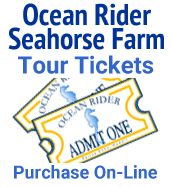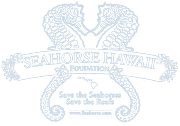Ocean Rider Seahorse Farm and Tours | Kona Hawaii › Forums › Seahorse Life and Care › KH is killing me! › Re:KH is killing me!
Dear Seagazer:
Yup, your carbonate hardness or KH is definitely running a bit high right now. If you are adding a pH buffer or supplementing your reef tank with calcium, that may be contributing to the problem and I would discontinue such buffers or additives until your KH comes back down to normal levels. That should only be a matter of time since the live corals and calcareous algae in your reef system are actively removing bicarbonate from the aquarium water for metabolism and growth, reducing the carbonate hardness in the process. Water changes using unbuffered RO/DI softened water will also help bring the KH down, but I would wait a bit before I performed another partial water change.
Here are some excerpts from my new book (Complete Guide to the Greater Seahorses) that discuss the relationship between pH, buffers, alkalinity, carbonate hardness (KH) and calcium in greater detail:
pH: Optimum level = 8.1 – 8.4 (typically fluctuates between 7.9 at night and 8.4 during the day)
The pH is a measurement of the alkalinity or acidity of aquarium water. A pH of 7 is considered to be "neutral," neither acid or alkaline, while pH levels above 7 are considered to be alkaline or "base," and pH levels below 7 are considered to be acidic. Marine aquaria need to maintain alkaline conditions at all times, and low pH (< 7.6) is especially detrimental to seahorses because it is conducive to Gas Bubble Disease. Normal daily fluctuations in pH are to be expected in the aquarium, and are generally gradual enough not to be stressful (Webber, 2004). Maintaining a sump with a reverse photoperiod to the main tank can eliminate these natural pH cycles. Regular partial water changes are the key to maintaining stable pH. Buffers can also help but the hobbyist should beware that excessive use of pH buffers may increase KH values to dangerously high levels.
Alkalinity: Optimum level = 2.4 milliequivalents per litre (meq/L), which is the alkalinity of natural seawater, is best for fish tanks; > 3.0 meq/L is recommend for reef tanks.
The alkalinity is basically a measure of the capability of your aquarium water to resist changes in pH from the addition of acid (Trevor-Jones, Nov. 2002). Acid is continually entering the aquarium, primarily as the result of respiration (CO2) and metabolic wastes produced by the aquarium inhabitants (Trevor-Jones, Nov. 2002). The addition of these acids tends to lower the pH of the aquarium water. The higher the alkalinity of your aquarium water, the more resistant it is to such downward pH shifts (Trevor-Jones, Nov. 2002). The amount of buffers (primarily carbonate and bicarbonate) in saltwater determines the alkalinity, so the alkalinity in effect is the buffering capacity (Trevor-Jones, Nov. 2002). When the buffering capacity of the water is depleted, the pH becomes unstable. Alkalinity test kits can now warn of low buffering levels in time to prevent potential pH problems (Trevor-Jones, Nov. 2002).
Carbonate Hardness (KH): Optimum level = 7dKH (the hardness of natural seawater)
Carbonate hardness is another measurement of alkalinity. It is usually expressed in the German unit dKH (degrees of carbonate hardness) and is often considered to be the total alkalinity. (Dividing dKH by 2.8 will give you the alkalinity in meq/L.) KH is actually a measurement of various carbonates and bicarbonates of calcium and magnesium within the aquarium water (Webber, 2004). Maintaining a stable KH is very desirable since it maintains the buffering capacity (i.e., alkalinity) of the system and prevents subsequent drops in pH. Aside from stabilizing the pH, reef keepers need to maintain KH and high alkalinity in order to assure that the calcifying organisms in the tank flourish. Corals and other calcifying organisms actively use bicarbonate, which is the main component of alkalinity, so the alkalinity of a tank with a lot of calcification can drop quite rapidly.
Calcium (Ca): Optimum level = 350 – 400 ppm (up to 500 ppm in well-stocked reef tanks)
Calcium is a very important element in the water in any marine aquarium and is a vital element in reef tanks. Along with carbonates and bicarbonates, it is required by calcifying organisms such as stony corals, snails and other mollusks, coralline, Halimeda and other calcareous algae, and certain sponges (Trevor-Jones, Apr. 2003). Calcium reserves must therefore be replenished on a regular basis. Regular water changes may achieve this, but reef keepers may require the addition of biologically available calcium to maintain adequate levels (Trevor-Jones, Apr. 2003). Seahorse keepers should be aware that brooding males provide calcium to the developing fry in their pouches, which the embryos probably incorporate into their skeletons. Deficiencies in calcium could thus adversely affect your seahorses’ reproductive success and the health of the fry. In fact, seahorses that receive a diet deficient in calcium often suffer from decalcification of their exoskeleton, a debilitating condition commonly known as "soft plate" disease (Greco, 2004).
Best of luck with your reef system, Seagazer!
Respectfully,
Pete Giwojna




